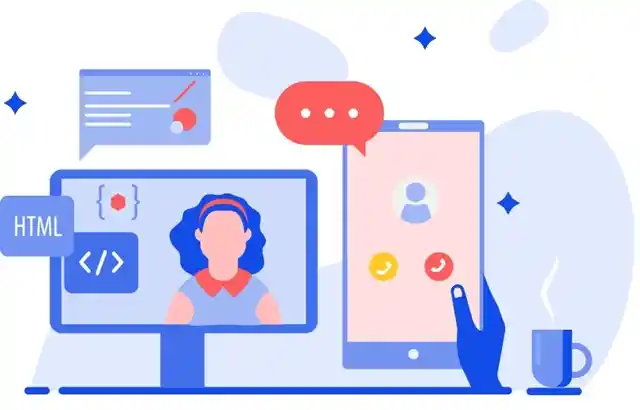Effective communication lies at the heart of successful business endeavors. As technology progresses, businesses seek creative ways to engage with their audience. They also try to drive meaningful interactions to know the consumers better. One such innovation is Voice Application Programming Interface (API) technology. Delve into how Voice API is revolutionizing communication in the business world. Also, read on to explore its implications for marketing strategies.
The Rise of Voice API Technology
Voice API technology empowers businesses to embed voice capabilities directly into their digital platforms, facilitating user interactions through spoken commands. This innovative approach not only enhances the user experience by allowing for hands-free operation and natural language processing but also addresses growing concerns over privacy and security through sophisticated call masking features.
As a result, businesses are increasingly adopting voice APIs to develop a range of applications, from customer service bots and interactive voice response systems to voice-enabled mobile apps. This shift towards voice API integration reflects a broader trend of seeking more intuitive and secure methods of interaction within digital environments.
Data by Grand View Research talks about the global voice recognition market size. The market might reach USD 127.58 billion by 2027, with an annual growth rate (CAGR) of 19.8% during the forecast period. This staggering growth shows the increasing demand for voice-enabled solutions. Various industries, including marketing, are now aiming to integrate this idea.
Capabilities of Voice APIs
Speech-to-Text and Text-to-Speech: These foundational features of Voice APIs allow for a seamless conversion between spoken words and written text, enabling a natural and accessible user interface.
Natural Language Understanding: This capability is crucial for interpreting user intent, allowing businesses to develop more responsive and intuitive voice-based interactions.
Developer Flexibility: Voice APIs offer developers the freedom to create customized voice experiences tailored to specific user needs, enhancing the potential for innovation in digital services.
Innovating with Voice API Technology
Customization Opportunities: Businesses can harness Voice APIs to design unique voice experiences that cater to individual customer preferences, setting them apart in a competitive digital landscape.
Integration and Compatibility: The adaptability of Voice APIs means they can be integrated into a wide array of digital platforms, enriching the user experience without the constraints of specific devices or systems.
Future-Proofing Business Communications: By adopting Voice API technology, companies can future-proof their communication strategies, ensuring they remain at the forefront of digital innovation with scalable and adaptable voice solutions.
Enhancing Customer Engagement
Voice API technology offers businesses a unique opportunity to enhance consumer engagement. This provides a more intuitive and interactive user experience. By integrating voice commands into their marketing channels, businesses can assist audiences. With the help of channels like websites, mobile apps, and social media platforms.
Studies have shown that voice-enabled interactions can increase customer engagement and conversion rates. As per a study by Capgemini, 35% of consumers prefer using voice assistants for shopping. Also, 49% believe that voice technology makes their lives easier. These statistics highlight the growing acceptance of voice-enabled experiences among consumers. It also makes Voice API a potential tool for businesses to capitalize on.
Personalizing Marketing Experiences
Voice API technology has many advantages, like its ability to personalize marketing experiences based on individual preferences and behaviors. The ability of the technology to analyze voice data and insights is the key. With this, businesses can get valuable insights into customer preferences and purchase intent.
For example:
- A retail company can use this application to offer personalized product recommendations. This can be done based on a customer’s past purchases or browsing history.
- A travel agency can provide tailored travel suggestions and itinerary recommendations. This is possible after knowing the customer’s destination preferences and travel habits.
Improving Accessibility and Inclusivity
Voice API technology is pivotal in enhancing accessibility and fostering inclusivity for individuals with disabilities. Enabling voice-controlled navigation and interaction within digital platforms, allows companies to offer services that are more accessible to those with various impairments. This approach significantly broadens the scope of who can effectively use digital services, breaking down barriers and ensuring a more inclusive user experience across the board.
According to the World Health Organization (WHO), about 15% of the world’s population lives with some form of disability. By embracing this technology, businesses can break down barriers. They can access and create more inclusive experiences for all users.
Streamlining Business Operations
Beyond enhancing customer-facing interactions, Voice API technology can also streamline internal business operations. By automating routine tasks and processes through voice-enabled commands, businesses can improve efficiency. This reduces operational costs and enhances employee productivity.
For example:
- A logistics company can use voice-enabled devices to track inventory levels. They can manage shipments and update delivery schedules in real time.
- A customer service team can use voice-controlled applications to streamline call routing. They can automate responses to FAQs and provide faster resolution times for inquiries.
Conclusion
Voice technology holds immense potential for transforming communication in the business world. It can also help in the redefining of marketing strategies. Voice-enabled solutions enhance customer engagement, personalize marketing, improve accessibility, and streamline internal operations. As technology evolves, businesses using this innovation can thrive in a competitive marketplace.
FAQs:
How secure is Voice API technology for handling sensitive customer data?
Voice API providers focus on security and compliance to protect sensitive customer data. They put in place encryption protocols and access controls. Also, provide other security measures to protect data privacy and control unauthorized access.
What are some common use cases for Voice API in marketing?
Some common use cases for Voice API in marketing include:
- Voice-enabled customer support
- Voice search optimization
- Interactive voice response (IVR) systems
- Voice-controlled virtual assistants for shopping and product recommendations
How does Voice API technology ensure data privacy?
It ensures privacy through strong encryption protocols, secure methods, and stringent access controls. This helps safeguard sensitive customer data from unauthorized access. Also stops potential breaches, ensuring compliance with data protection regulations.
This post was last modified on March 7, 2024 2:23 PM

